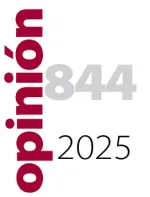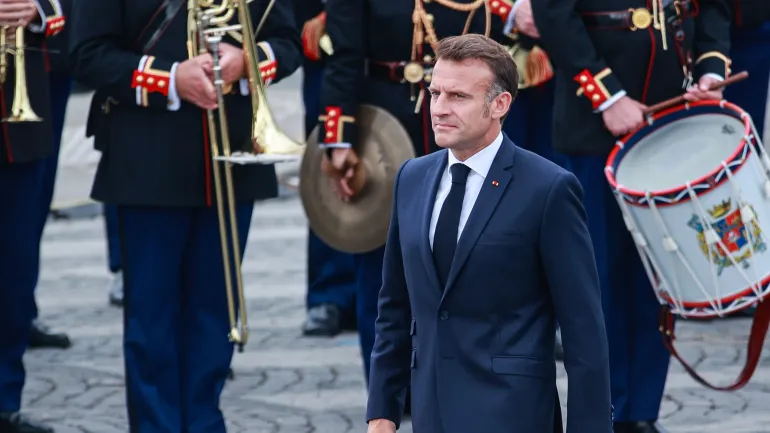French role in the world falls victim to domestic politics


The fall of French prime minister, François Bayrou, in a parliamentary confidence vote deepens institutional instability in the EU’s second-biggest economy. Emmanuel Macron has lost his fourth prime minister of his second tumultuous term, and France’s gaping deficit and apparently intractable political divisions remain stubbornly in place.
By holding a vote on his deficit-cutting plan, the French prime minister, François Bayrou, insisted he was seeking “clarification”. So was President Emmanuel Macron when called a snap election which he lost fifteen months ago. This was his second misjudgement of the mood of France after that of the Yellow Vests crisis in 2019. That decision brought political chaos and budget crisis. Bayrou’s allies describe him as “the most principled politician in France” but a deputy called the prime minister’s decision to call a confidence vote which he lost by 364 votes to 194 as “the story of a guy who jumps out of a window convinced he can fly”. Hammering away at the idea that France’s ever rising debt was “a curse” amounts to grandstanding, an attitude many French people who see Bayrou as “a screwball” have come to expect from a man who has not contributed any policy of note in forty years of public life.
Beyond the departing prime minister and the president who has lost his fourth prime minister of his second tumultuous term, France’s gaping deficit and apparently intractable political divisions remain stubbornly in place. Few politicians, except Bayrou in his last few days in office dare tell their countrymen that the country’s high tax and spend social model favours older generations to the detriment of the young. France today desperately needs one thing the population, the media and the government are unwilling to tolerate… sacrifice. The time has come for tough decisions about its welfare state, allocation of resources, immigration policy and endless layers of bureaucracy. The president could start by abandoning some of his dogmas like refusing any tax rises, especially on the very rich – abolishing the latter at the beginning of his first term has done little to speed economic growth and rightly earned him the nickname of “President of the rich”. He might even attempt to make a compromise with the centre left even at the cost of some of his favoured projects.
France’s debt is the elephant in the room. It amounts today to 114% of GDP. The country needs to run a primary surplus (balance of payments before interest) of 1% to stabilise its debt but has only managed to achieve such a surplus once in the last thirty years. State borrowing increased faster than usual due to the Covid-19 pandemic (that is when Macron, for the second time since 2017, started throwing money at problems he could not solve) and because of Russia’s invasion of Ukraine. But France’s incapacity to rein in state spending, simplify the running of the state, tax the very rich, and accept that an ageing population means a longer working life does not simply result from people’s reluctance to face facts but from the incapacity of the political parties to confront reality and engage with their electors. Their incapacity to build coalitions is costing France dear. A downgrading of France’s debt by the rating agencies would have a greater impact on economic policy that the endless polemics which pass as parliamentary life.
A weaker role on the world stage
France’s domestic political chaos weakens the country’s role on the European and world stage. It also weakens the EU’s role worldwide. Macron has been a keen advocate of an ambitious programme of EU market integration and investment, backed by more EU borrowing but the country’s inability to get its public finances under control makes any new borrowing policy politically impossible as it would be characterised in Brussels as a bailout for France’s financial profligacy. Beyond the huge challenge presented by Donald Trump’s thrashing of America’s traditional allies and the hardball policies of China, France has failed to craft any meaningful response to the twin crisis which are undermining the very future of the EU: Ukraine and Gaza.
On the second front, countries such as Spain and Ireland have taken a far more principled stand since the start of the war imposed by the Israelis on the Palestinians. Macron has zigzagged and given the impression of confusion in a region where his predecessor Jacques Chirac showed the benefits of strategic thinking. France’s standing in the Middle East and North Africa has been severely weakened as a result.
Where Ukraine is concerned (and to give but one example), France and its European peers continue to argue for the need of a peacekeeping force as part of a peace agreement. Whatever the virtue of such a force as part of an eventual peace agreement, it is worth noting that “the entire British army now has 74,000 soldiers (and) the French army is in no better shape”. Macron mentioned the possibility of sending European troops to Ukraine for the first time on the side lines of the Paris summit of 24th February 2024 but the weakness of the French army in the conventional domain handicaps Paris’ aspirations for the emergence of a European strategic autonomy. The Fifth Republic gives the president considerable powers in foreign and miliary affairs, but Macron is further weakened by a deeply divided public opinion both on Gaza and Ukraine. French public opinion which was staunchly pro-Israel after 7th October 2023 is shifting and a majority is against putting French boots on the ground in Ukraine.
Emmanuel Macron’s legacy was severely damaged after last year’s election but the policies he offers both domestically and abroad remain far less divorced from reality that the far right Rassemblement National led by Marine Le Pen and the hard left La France Insoumise led by Jean-Luc Mélenchon. If alternative policies to the ones offered by these two extremes are not debated publicly and with a minimum of honesty let alone acceptance of the hard facts of international economics and debt markets, there is little chance of the country moving forward. The president has often appeared arrogant and aloof – eating a little humble pie, being more pedagogical might help him regain some popularity and save some of his legacy even if a new lacklustre prime minister with no majority in parliament prolongs the agony. He could gamble on introducing proportional representation and call a new poll but that carries the risk of boosting the vote of the radical left and right parties. These are not happy days for a once proud nation where opinion polls regularly show people are more pessimistic than in any other country in the West.
Keywords: France, Macron, Bayrou, politics, budget, institutional instability, debt, crisis, Le Pen
All the publications express the opinions of their individual authors and do not necessarily reflect the views of CIDOB or its donors